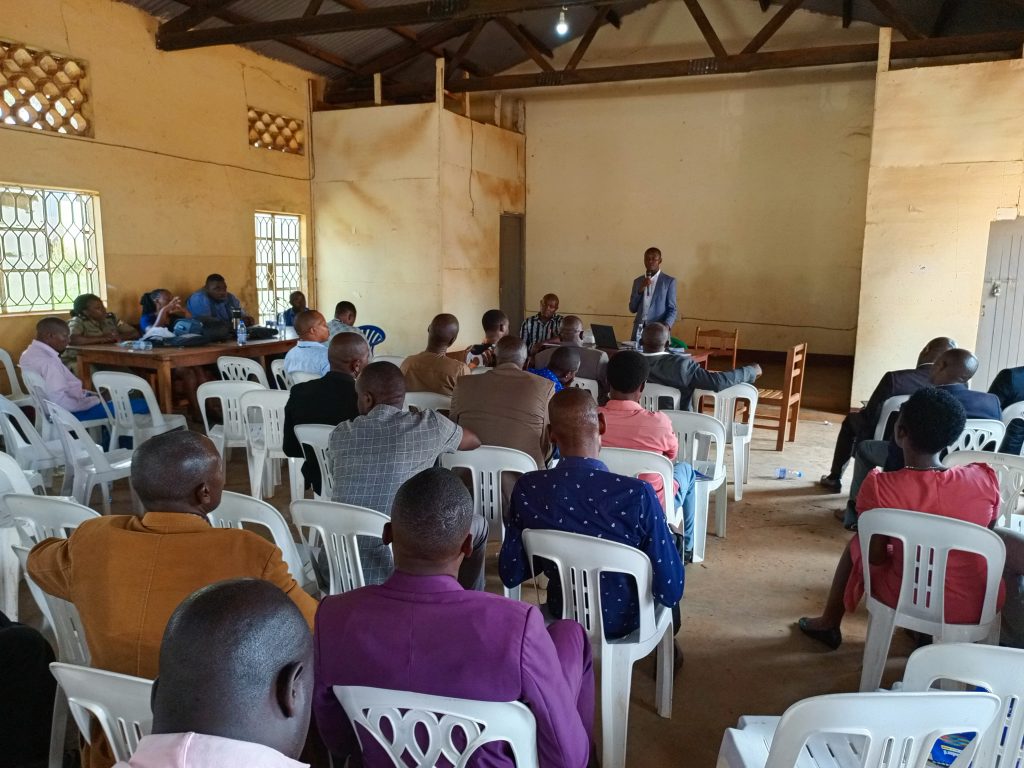Kagadi
Kagadi District local government together with the Ministry of Agriculture, Animal Industry and Fisheries have held a stakeholder engagement to share progress on the implementation of the Micro-scale irrigation Program in Kagadi District.
The one day workshop held at Kagadi District community Hall was attended by LCIII Chairperson, District councilors, Subcounty chiefs and Town clerks and Community Development officers from the 35 lower local government that make up Kagadi District.
Kagadi is grouped under cluster 6 which comprises 11 districts including Kikuube, Ntoroko, Bunyangabu, Bundibudjo, Mitoma, Kasese, Kabarole, Rubirizi among others.
During the engagement leaders in Kagadi District have pledged to spread the information to the local farmers regarding the Micro-scale irrigation in order to improve house hold incomes.
Grace Byansansa from the Ministry of Agriculture, Animal husbandry and Fisheries said the effects of climate change led government to introduce the irrigation program to enable farmers produce much food even during prolonged dry spells.
She says for a farmer to get the irrigation equipment, he or she must have at least two acres of land, have access to a source of water not more than 700 metres away and be willing to co-fund the purchase of irrigation equipment at 25 percent as the government meets 75 percent of the cost for solar powered equipment.
For Fuel powered equipment, the government contributes 25 percent and farmers 75 percent.
Mparana Desire the Senior Agricultural officer explains that the program has been tested in the district through the establishment of the 7 demonstration sites and it has been successful.
Mparana says government has allocated over Ugx600M to support 34 farmers who have expressed interest for the program.
He rallies farmers to welcome the program to boost food production in the district.
The micro scale irrigation program is in line with Uganda’s National Irrigation Policy which aims to create 1.5 million hectares of irrigated land by the year 2040.
According to the Uganda Bureau of Statistics, about 70 percent of Uganda’s working population is employed in agriculture which has been hit by unreliable rains resulting from unreliable climatic changes.





